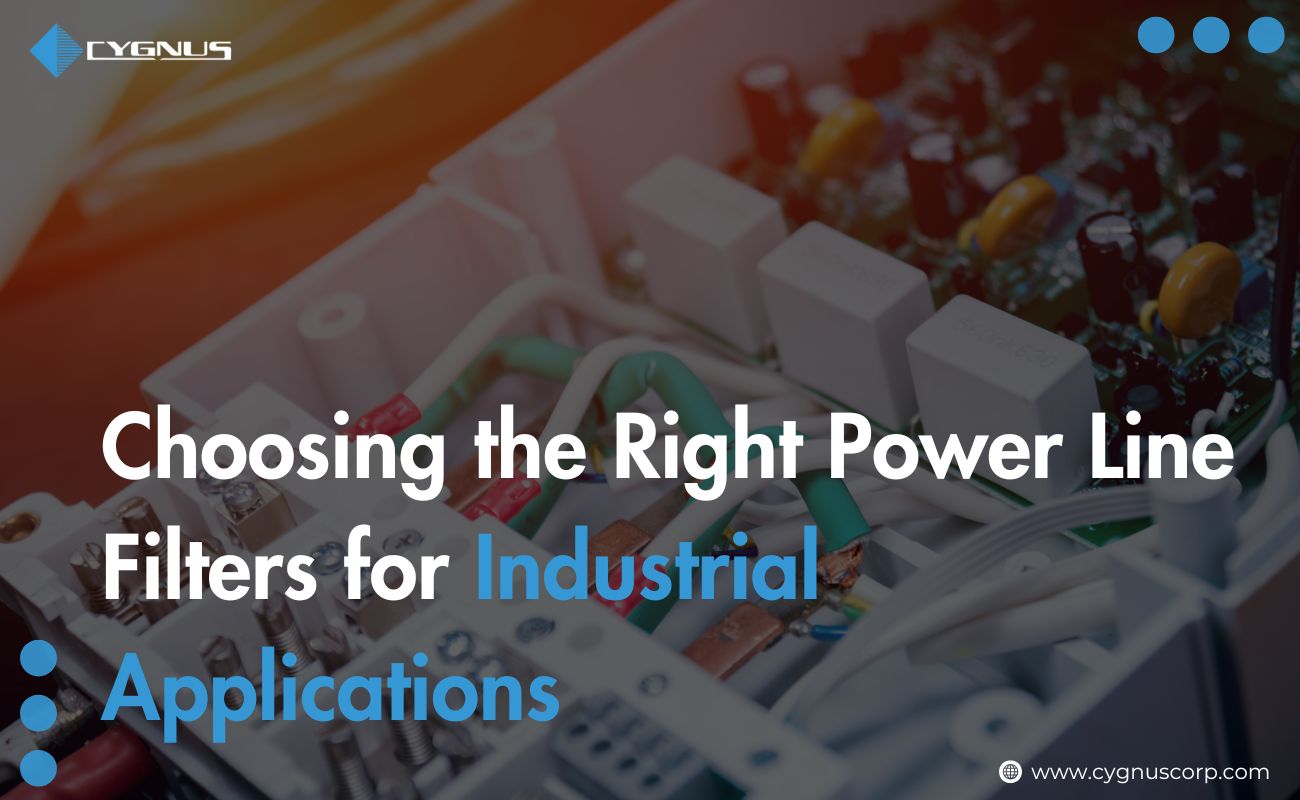Industrial equipment is the backbone of modern manufacturing, healthcare, and energy systems. But with that complexity comes a challenge: electrical noise. Left unmanaged, it can disrupt operations, shorten equipment life, and even cause costly downtime. That’s where power line filters step in.
In this guide, you’ll learn what power line filters are, where they’re used, and—most importantly—how to apply a power line filter selection guide to ensure your systems run reliably and meet compliance standards.
What Are Power Line Filters and Why Are They Important?
A power line filter is an electrical component designed to block unwanted signals while allowing the desired power frequency to pass through. Think of it as a noise bouncer—it keeps interference out, so your systems can run smoothly.
These filters reduce electromagnetic interference (EMI) and radio frequency interference (RFI), which can otherwise wreak havoc on sensitive electronics. Industrial systems are especially vulnerable because they often run high currents, operate in harsh conditions, and integrate multiple machines that can generate interference.
👉 If you’ve ever wondered, “Why do I need a power line filter?”, the answer is simple: to protect your equipment, comply with regulations, and achieve noise reduction in electrical systems.
Common Industrial Applications of Power Line Filters
Industrial power line filters aren’t just for one type of machine—they’re used across sectors:
- Manufacturing equipment: Protects robotic systems, CNC machines, and automated lines from EMI.
- Medical devices and lab equipment: Ensures accuracy in sensitive diagnostic tools.
- Renewable energy systems: Keeps solar inverters and wind energy systems efficient and compliant.
- Heavy-duty motors and drives: Reduces interference that could cause overheating or failure.
👉 In short, wherever reliable performance matters, you’ll likely find a filter working quietly in the background.
Key Factors to Consider When Selecting a Power Line Filter
Not all filters are created equal. A proper power line filter selection guide should cover these essentials:
- Current and voltage rating – match the filter to your system’s load.
- Frequency range – ensure the filter suppresses EMI and RFI at the required levels.
- Compliance standards – look for certifications like CE, FCC, and UL to meet global requirements.
- Environmental conditions – consider heat, dust, vibration, and humidity that can affect performance.
👉 Following these steps is crucial for choosing the right power line filter that fits your exact application.
Power Line Filters vs. Other EMI Solutions
It’s easy to confuse filters with other EMI solutions, but each serves a role:
- Chokes: Provide basic interference reduction but lack broad suppression.
- Ferrites: Good for quick fixes but less effective in high-power setups.
- Shielding: Blocks external noise but doesn’t address line-carried interference.
The advantage of industrial power line filters is that they directly address conducted EMI at the source, and can also be combined with other solutions for maximum protection.
Mistakes to Avoid When Choosing Power Line Filters
Even seasoned engineers can misstep during selection. Common mistakes include:
- Underrating current capacity – leading to overheating and premature failure.
- Ignoring environmental stress factors – dust, heat, and vibration can degrade performance fast.
- Overlooking compliance or testing – skipping this step risks costly non-compliance fines.
👉 Avoiding these pitfalls ensures your investment delivers long-term noise reduction in electrical systems.
Case Study: How the Right Power Line Filter Improved System Reliability
Consider a manufacturing plant where frequent EMI issues caused downtime in automated assembly lines. After consulting a power line filter selection guide and upgrading to certified three-phase filters, the plant saw:
- A 40% reduction in downtime due to interference issues.
- Improved compliance with international EMI standards.
- Longer life expectancy for sensitive controllers and sensors.
👉 This real-world example highlights the importance of choosing the right power line filter for your specific industrial environment.
Conclusion: Making the Right Choice for Industrial Success
Power line filters may be small components, but their impact is massive. By reducing interference, improving compliance, and boosting system reliability, they protect your investment in critical equipment.
The key takeaway? Don’t rush the process. Use a clear power line filter selection guide, factor in your environment, and focus on compliance. That way, you’ll not only achieve noise reduction in electrical systems but also set your business up for long-term success.
FAQs
How do power line filters reduce EMI in industrial applications?
They block unwanted high-frequency signals while allowing standard AC power to pass, keeping equipment stable.
What is the difference between single-phase and three-phase power line filters?
Single-phase filters are ideal for smaller devices, while three-phase filters handle heavy industrial machinery.
How do I know if my system needs a power line filter?
If you experience frequent EMI issues, compliance failures, or unstable operation, a filter is likely essential.
Can power line filters improve energy efficiency?
Yes—by reducing interference, they help equipment operate more reliably, which indirectly improves efficiency.




